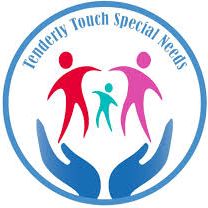
At Tenderly Touch Special Needs, Lucknow, we understand that clear and healthy communication is essential for everyone. For some, however, voice disorders can interfere with their ability to speak clearly or comfortably. Voice therapy is an effective treatment for addressing many types of voice disorders, helping individuals restore or improve their vocal quality. This blog provides an overview of voice disorders, their causes, characteristics, and treatments, as well as tips for parents to support their child's vocal health.
What Are Voice Disorders?
Voice is produced by the vibration of the vocal folds (or cords) in the larynx (voice box). When the vocal folds do not vibrate properly or are strained, a voice disorder occurs. This can result in an unclear, strained, or weak voice, making communication difficult or uncomfortable.
Voice disorders can affect people of all ages, and can lead to significant challenges in daily life, whether at school, work, or home. A voice disorder may be the result of improper vocal habits, illness, or even injury.
What Causes Voice Disorders?
Voice disorders can be caused by several factors, including overuse or misuse of the voice. Common behaviors that can lead to vocal strain include:
Yelling or loud play: Constantly using the voice in loud or strained ways can damage the vocal folds.
Throat clearing and excessive coughing: These behaviors can cause irritation to the vocal folds, leading to damage over time.
These behaviors force the vocal folds to slam together with excessive force, leading to the formation of:
Vocal nodules: Small, benign growths on the vocal cords, often referred to as "singer’s nodes."
Subglottic stenosis: Narrowing of the airway below the vocal cords.
Vocal cord cysts: Fluid-filled sacs on the vocal cords that can affect vibration.
Granulomas: Growths that form as a result of irritation or injury to the vocal folds.
Papillomas: Warts or growths that appear on the vocal folds, often caused by a viral infection.
Characteristics of Voice Disorders
Voice disorders can manifest in several ways. Common characteristics of a voice disorder include:
Hoarseness: A rough or raspy voice that may sound strained or weak.
Breathiness: A voice that sounds airy or weak, as if the speaker is out of breath.
Raspiness: A harsh, gravelly voice quality.
Harshness: A voice that sounds strained or forced, often due to improper vocal fold vibration.
These symptoms can make it difficult for individuals to communicate effectively, leading to frustration or avoidance of speaking altogether.
What Is the Treatment for Voice Disorders?
If you or your child is experiencing vocal difficulties, consulting a Speech-Language Pathologist (SLP) is the first step. An SLP specializes in diagnosing and treating voice and speech disorders.
The treatment for voice disorders can vary, but often includes a combination of medical intervention and voice therapy. In some cases, medication or surgery may be necessary, especially if there is a physical issue like cysts or nodules. However, many voice disorders can be successfully treated through voice therapy alone.
Voice Therapy: Techniques and Benefits
Voice therapy focuses on teaching individuals how to produce a healthy, strong voice without straining the vocal folds. The goal is to correct harmful vocal habits and develop new, healthier ways of speaking.
Key components of voice therapy include:
Identifying and eliminating harmful voice patterns: This includes addressing behaviors like yelling, throat clearing, and screaming, which can damage the vocal folds.
Improving vocal health: Therapists may recommend lifestyle changes like increasing water intake and reducing caffeine or alcohol consumption, which can dry out the vocal folds.
Vocal exercises: SLPs teach exercises to strengthen the vocal folds and improve breath support. These exercises are crucial in retraining the muscles used for speaking, ensuring that the voice is produced in a relaxed and effective manner.
Voice therapy often involves practice and patience, as individuals work to establish new vocal habits. It can take time, but with consistent practice, many individuals experience significant improvement in their voice quality.
What Can Parents Do to Help?
If your child is undergoing voice therapy, there are several ways you can support them during their treatment. Consistent practice and healthy vocal habits are key to the success of voice therapy. Here are a few tips for parents:
Encourage practice: The goal of voice therapy is to teach your child a new way of producing sound. Ensure that they practice their voice exercises daily, even if it's for short periods. Regular practice will help strengthen their vocal skills.
Promote vocal rest: Encourage your child to take “voice naps”—periods during which they refrain from speaking or making any sound. This gives the vocal folds a chance to rest and heal.
Use a quiet voice: Encourage your child not to yell or speak loudly when communicating. Use gentle reminders to help them speak in a calm, relaxed manner.
Hydration is key: Remind your child to drink plenty of water throughout the day. This helps keep the vocal folds hydrated and supports healthy voice production.
Avoid irritants: Keep your child away from environments that might irritate their voice, such as smoky rooms or areas with excessive noise.
Conclusion
Voice disorders can be disruptive to a person’s daily life, but with the right support and treatment, many individuals can regain a clear and healthy voice. Voice therapy is an effective approach to managing and treating voice disorders, helping individuals learn healthy vocal habits that can last a lifetime.
If your child is experiencing voice difficulties, consult a qualified Speech-Language Pathologist at Tenderly Touch Special Needs, Lucknow for a personalized evaluation and therapy plan. Together, we can help your child achieve optimal vocal health and confident communication.
Share:
Tenderly Touch Special Needs
At Tenderly Touch Special Needs, we take immense pride in our unwavering commitment to excellence in everything we do. We understand the unique challenges faced by children with special needs, and our goal is to provide the highest quality care, therapy, and education to help every child thrive.
Request A Call Back
Unlock your parenting potential with expert guidance. Contact Tenderly Touch Special Needs today to begin your journey towards personal growth and family harmony. Transform your life, one step at a time.
